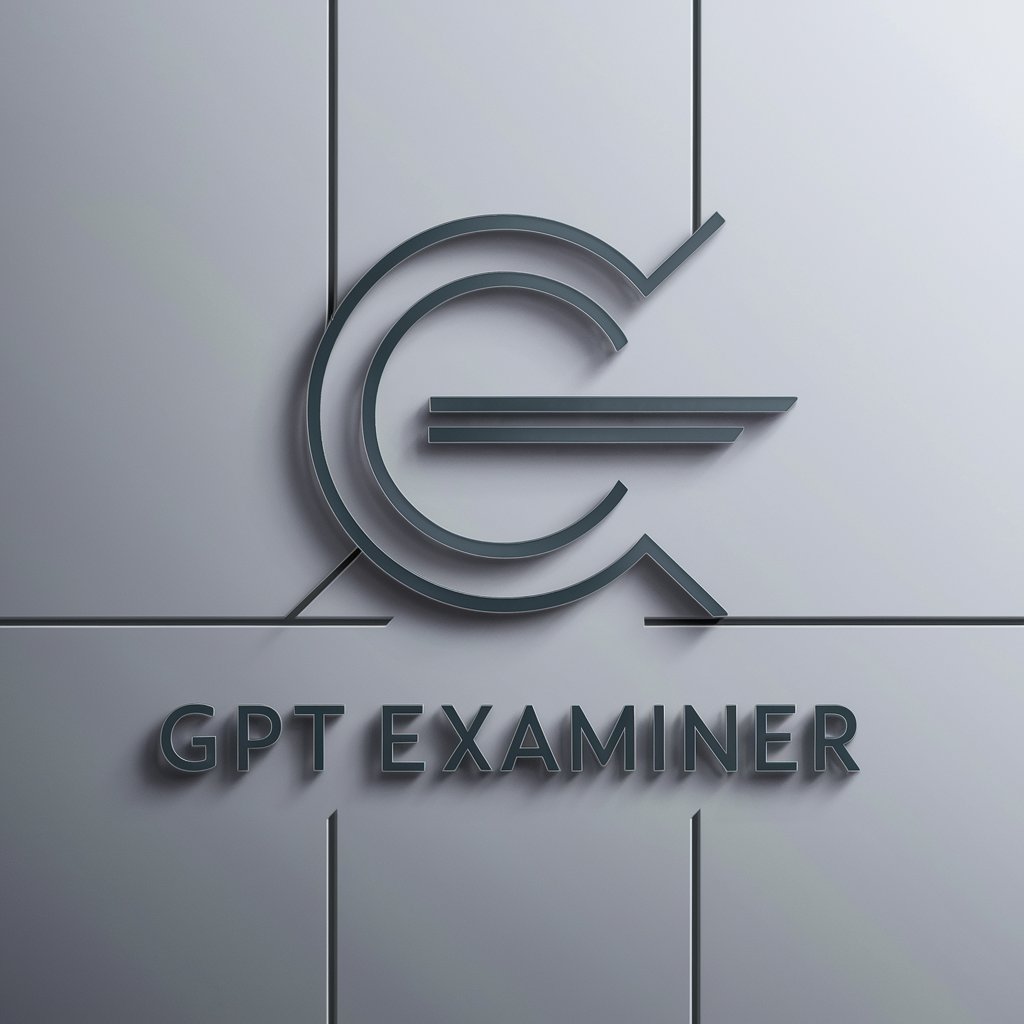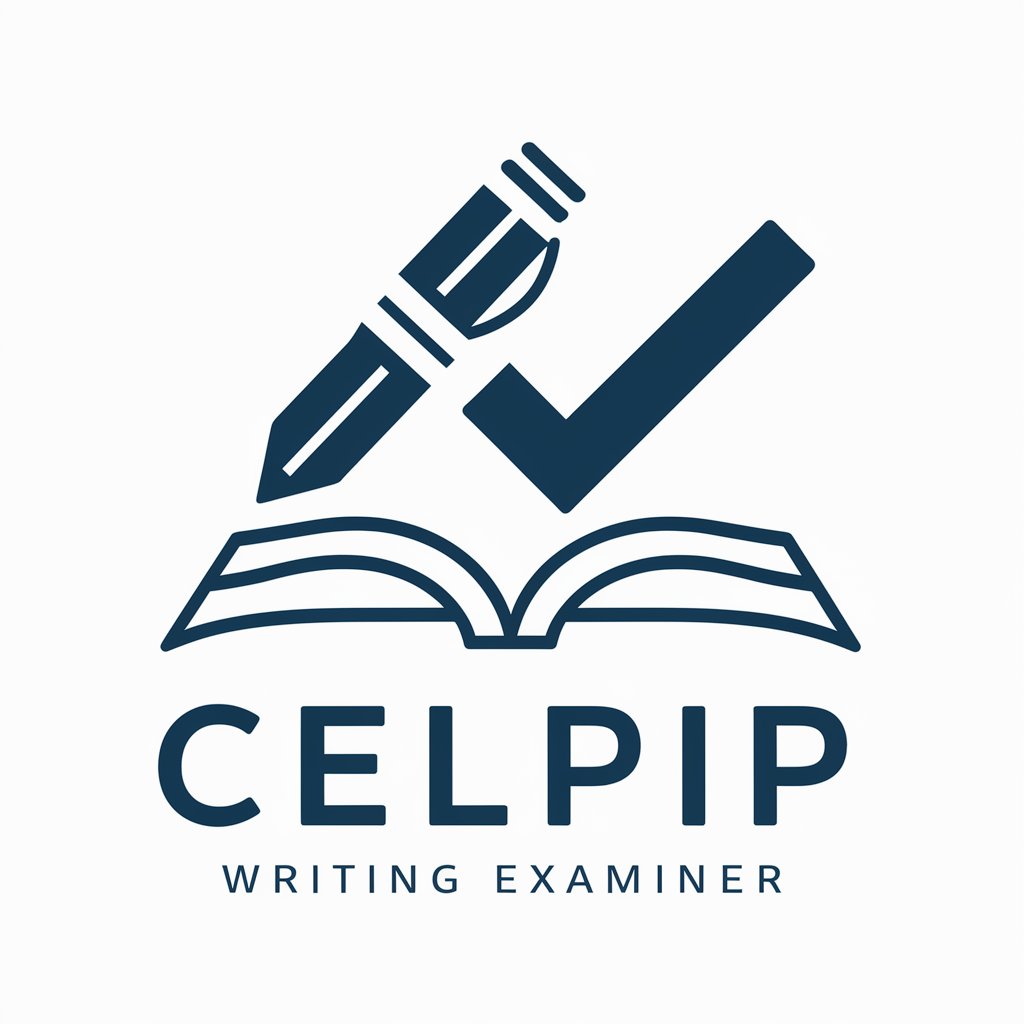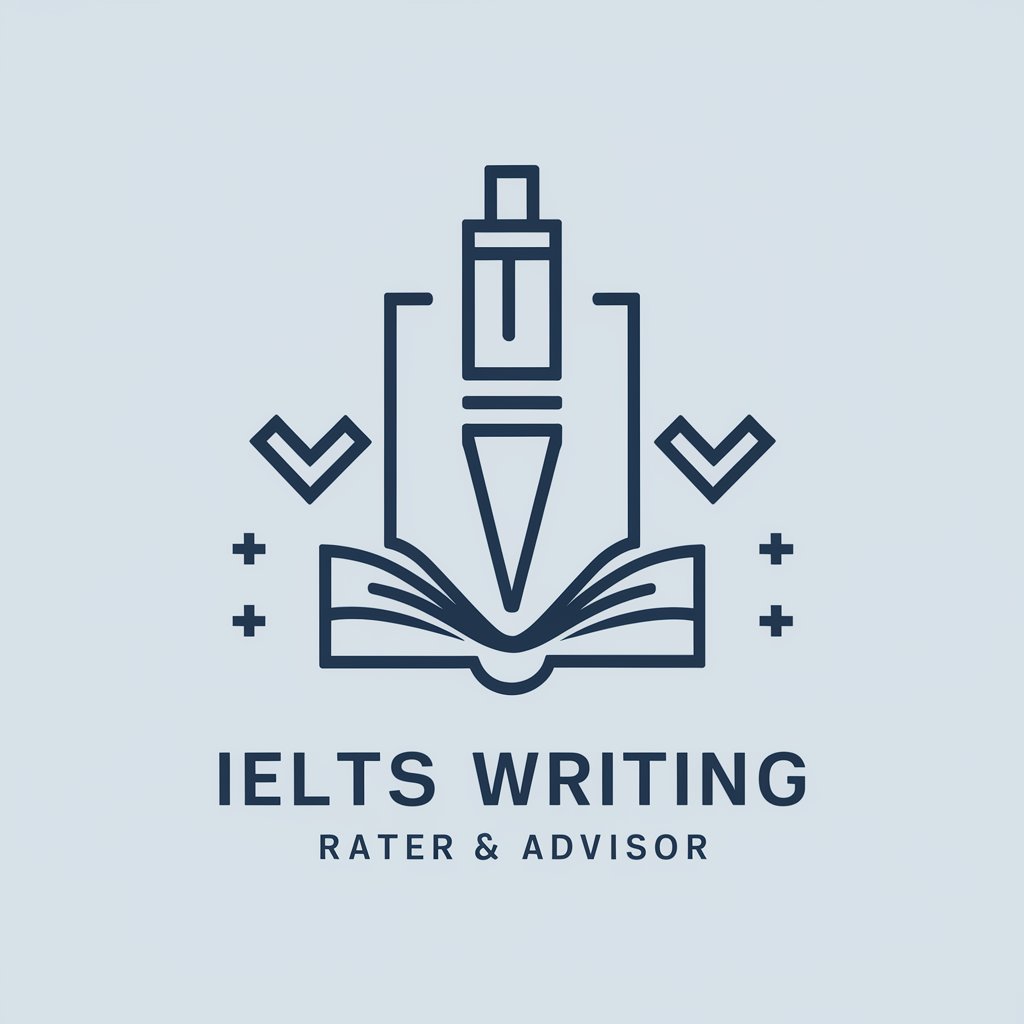
IELTS Writing Examiner - IELTS Writing Practice & Evaluation

Hello! Ready to boost your IELTS writing score?
Enhance your IELTS writing with AI-powered feedback.
Describe a time when you had to write a formal letter. What was the occasion, and how did you approach it?
Discuss the advantages and disadvantages of working from home compared to working in an office.
Explain the importance of having good writing skills in today's digital age.
Analyze the impact of social media on written communication. Do you think it has improved or deteriorated the quality of writing?
Get Embed Code
Introduction to IELTS Writing Examiner
IELTS Writing Examiner is a specialized tool designed to assist candidates preparing for the IELTS (International English Language Testing System) Writing Test, encompassing both Academic and General Training modules. Its primary goal is to enhance users' writing skills and familiarity with the exam format, offering a range of services from generating sample writing questions with accompanying graphics to providing detailed feedback and scores based on IELTS band descriptors. For instance, a user practicing for the Academic Writing Task 1 might be provided with a graph showing internet usage trends and asked to summarize the information, to which detailed feedback and a band score would be given, highlighting areas for improvement. Powered by ChatGPT-4o。

Main Functions of IELTS Writing Examiner
Sample Question Generation
Example
For Academic Writing Task 1, users could receive a bar chart on global gold sales, while General Training candidates might get a letter-writing task to a new employer. Both scenarios come with prompts tailored to the specific demands of the task type.
Scenario
A user requests a sample question for Academic Writing Task 1. The system generates a task involving a line graph representing urbanization rates over a century, accompanied by a detailed prompt instructing the user on how to approach the question.
Grading and Feedback
Example
After submitting their response to a sample question, users receive an estimated band score along with comprehensive feedback. The feedback covers Task Achievement, Coherence and Cohesion, Lexical Resource, and Grammatical Range & Accuracy, pinpointing strengths and suggesting areas for improvement.
Scenario
A user submits a response to a Task 2 question on the effects of global warming. The system evaluates the submission, providing a band score and detailed feedback that critiques the essay's structure, use of language, and argumentation, offering constructive advice for enhancement.
Writing Improvement Tips
Example
Based on common weaknesses observed in submissions, the system provides targeted advice on improving various aspects of writing, such as enhancing coherence through better paragraphing or enriching the lexical resource by avoiding over-reliance on certain phrases.
Scenario
A user frequently encounters issues with achieving a coherent flow in their essays. The system identifies this trend and offers customized tips on structuring arguments more logically and employing cohesive devices effectively to improve overall coherence.
Ideal Users of IELTS Writing Examiner Services
IELTS Candidates
Individuals preparing for either the Academic or General Training modules of the IELTS exam are the primary users. They benefit from practicing with realistic sample questions, receiving personalized feedback, and learning how to address their weaknesses effectively.
English Language Teachers
Educators can use the service to support their students' preparation for the IELTS Writing test by incorporating the tool's sample questions and feedback into their teaching materials, providing a structured and efficient way to enhance their students' writing skills.
Self-learners
Individuals studying English independently who seek to improve their writing skills for personal, academic, or professional reasons can benefit from the structured practice, feedback, and improvement tips the tool offers, tailored to the IELTS standards.

How to Use IELTS Writing Examiner
1
Start by accessing yeschat.ai for a complimentary trial, no signup or ChatGPT Plus subscription necessary.
2
Choose between Academic and General Training modules to match your test preparation needs.
3
Submit your written responses for Task 1 or Task 2 as per the instructions provided for each task type.
4
Receive a detailed analysis and estimated band score based on IELTS Writing Band Descriptors, including feedback on areas of improvement.
5
Utilize the sample questions and feedback to refine your writing skills and enhance your performance in the actual IELTS writing test.
Try other advanced and practical GPTs
Examine GPT
Empowering health decisions with AI-driven insights.

Conscience Examiner
Reflect, Grow, Renew: AI-Powered

RTOS Examiner
Harness AI to Master RTOS

GPT Examiner
Harnessing AI to Understand AI

Fraud Examiner
Empower your anti-fraud strategy with AI

Choose Your Path
Craft Your Own Adventure with AI

Literary Examiner
Empowering academic excellence with AI

CCEA Examiner
Enhancing Learning with AI Insight

CELPIP Writing Examiner
Refine Your Writing with AI Feedback

Virtually Interesting
Discover History with AI Power

BrainBuddy
Empowering students with AI-driven learning

Unique Talent Stack Architect
Craft Your Competitive Edge

IELTS Writing Examiner FAQs
What is the IELTS Writing Examiner?
The IELTS Writing Examiner is a specialized tool designed to help users prepare for the IELTS writing test by providing sample questions, grading submissions based on IELTS Writing Band Descriptors, and offering constructive feedback to improve writing skills.
Can I use the tool for both the Academic and General Training modules?
Yes, the IELTS Writing Examiner supports both Academic and General Training modules, providing tailored questions and feedback for each task type.
How does the examiner evaluate my writing?
Your writing is assessed based on the IELTS Writing Band Descriptors, considering factors like Task Achievement/Response, Coherence and Cohesion, Lexical Resource, and Grammatical Range & Accuracy.
How can I improve my band score using this tool?
By practicing with the sample questions provided, submitting your writings for evaluation, and implementing the personalized feedback, you can identify your strengths and weaknesses, and work on them to improve your overall band score.
Is there a limit to how many times I can use the tool?
While there might be no strict limit, it's advisable to focus on quality over quantity. Take time to work on feedback from each submission before making a new one to ensure continuous improvement.




